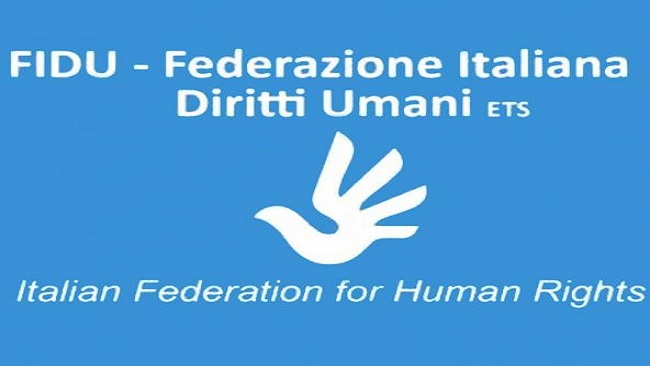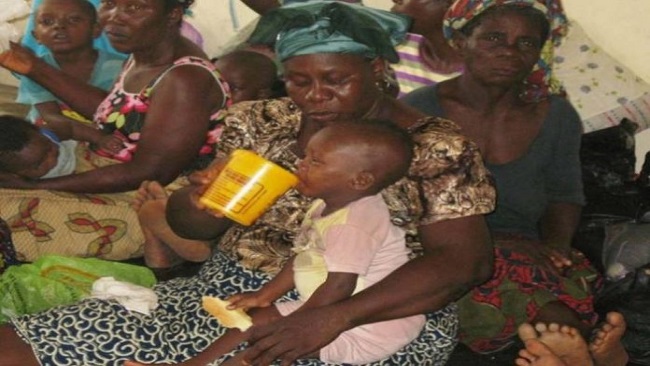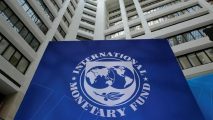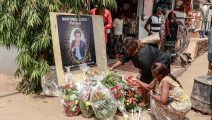1, November 2020
Southern Cameroon Crisis: Italian Federation For Human Rights makes urgent appeal following the Kumba massacre 0
On October 24, masked armed men killed at least 7 innocent school children and left many wounded in their classrooms in Kumba, in the Anglophone region of Cameroon.
This astonishing crime is not the first in a region where there are concrete risks of a genocide, as the international community is apparently unwilling to take concrete measures. In February 2019, about 12 children and a pregnant woman were massacred in cold blood in Ngarbur.
The Cameroon government initially put the blame on the ‘separatists’ groups; only after pressure from the international community, it acknowledged that the killing had been done by government forces.
Regarding this recent case (the Kumba Massacre), the Cameroon government is accusing the leadership of the Ambazonian self-determination forces for the atrocities, notwithstanding the fact
that the Cameroon government has not provided any proofs and similar accusations in the recent past have always been proved to be fake.
The Ambazonian leadership claims the Kumba Massacre was done by Cameroon government militias. In this situation, trustable international investigations are necessary. We believe that actions should have been taken earlier by the international community to avoid such a heinous crime. As many innocent lives have already been lost, we should aim to putting a permanent end to the conflict.
It is certain that with the ruthlessness of the Cameroon government, the resolve of Southern Cameroons self-determination forces and the nonchalant behavior of the international community, the war will continue, and more massacres and atrocities will take place.
If we really don’t want this to happen again, we should consistently act to favor a peaceful solution. The Cameroon government had and has the primary responsibility to end this war it started. The so-called separatists would have no one to fight if Cameroon calls a ceasefire and accepts negotiations as the separatists have done.
The crisis in the Cameroons has been ongoing since 2016, when lawyers from Anglophone Cameroon were brutalized by government military and security operatives during a peaceful protest in Bamenda, Buea and other cities.
Southern Cameroons leaders in exile in Nigeria were abducted and illegally transferred to Cameroon and subjected to trial in military courts in a foreign language, against international law.
They are today serving life sentences, despite a Nigerian High Court judgement asking for their release. The ongoing conflict in Cameroon may amount to acts of genocide. Some experts already call it as genocide.
This claim should not be underestimated by the international community.
Mr Paul Biya, who has been in power as President of Cameroon since 1982, thanks to wide-scale fraud in elections, violent repression and imposed changes in the Constitution, declared war on the 30th of November 2017 on the people of former British Southern Cameroons.
While the government of Cameroon claims that the conflict in Cameroon is an internal matter, the leadership of Southern Cameroons is of the opinion that it is an international dispute.
We believe that a conflict between two countries that came together in 1961 under the auspices of the United Nations cannot be the internal affair of one of the countries.
We therefore believe that it is the responsibility of the international community to create a framework for both sides to be heard in order to put an end to the conflict between them.
Bringing the two sides to the negotiating table is necessary, but till now the efforts have all failed because Cameroon was and is still unwilling to commit to any genuine, internationally mediated dialogue.
We are suggesting that the international community should use any possible leverage to intervene in this conflict. The lives of people, including children, in the English-speaking part of Cameroon matter. Children have not been protected and have missed out of school for four years.
It is clear to us that Cameroon, which is a member of the Commonwealth of Nations, has violated all Commonwealth principles and disrespected Commonwealth of Nations values. The people of Southern Cameroons should be given a platform by the African Union, the European Union, and the United Nations to put forth their claims.
We would like to suggest some key points for an urgent commitment by the international community:
An investigation on all the atrocities that have taken place in Southern Cameroons since 2016 should be carried out by independent observers, which should include the African Bar Association and the African Forum for Restorative Justice;
Cameroon should immediately call a ceasefire and an end to the war it declared;
Economic, financial and other sanctions should be placed on Cameroon to force it to accept peaceful negotiations;
Travel restrictions should be imposed on certain Cameroonian state officials whose names are attached to this document;
The UN should send peacekeepers into the Southern Cameroons;
The people of the Southern Cameroons should be given the opportunity at the UN to present their claims;
The rights to self-determination of the people of Southern Cameroons should be respected and their will ascertained through a fair, UN-organized referendum. First signatories
First signatories
Prof. Antonio Stango, President of Italian Federation for Human Rights (FIDU)
Prof. DJ Omale, President of African Forum for Restorative Justice
Sergio D’Elia, Secretary-General of Hands Off Cain (International League of Parliamentarians and Citizens for the abolition of the death penalty worldwide)




















1, November 2020
Schools at the heart of Cameroon’s separatist conflict 0
Schools are “weapons of war” in a separatist insurgency in Cameroon’s two Anglophone regions, but the massacre of eight young children in class last week brought a new level of horror.
Since violence erupted in 2017, the kidnapping of youngsters, attacks on teachers and the destruction of schools have been frequent in the western part of the mainly French-speaking country.
Secessionist groups kill civilians, while the army is also known for brutal attacks on non-combattants in its drive to crush forces seeking a breakaway state.
On October 24, gunmen on motorbikes rode up to a bilingual school in the town of Kumba and opened fire on girls and boys aged between 12 and 14.
At least eight children perished and about a dozen more were wounded and taken to hospital, according to the UN Office for the Coordination of Humanitarian Affairs.
“The school is used as a weapon of war in this conflict,” Ilaria Allegrozzi, regional Central Africa researcher for Human Rights Watch (HRW), told AFP.
“The separatists don’t want the children to be in the schools, institutions which they equate with central authority,” she said.
“Most of the teachers appointed to the Anglophone regions are Francophone,” Allegrozzi added, in a country where French is used by a majority. The English-speaking regions are a post-colonial heritage.
Syllabuses for history and civic education lessons are seen as biased instruments of government policy by separatists, who have in recent years introduced a strategy of school boycotts.
In November 2019, the UN Children’s Fund (UNICEF) reported that some 855,000 children were not attending school in the Anglophone regions.
About 90 percent of state-run primary schools, totalling more than 4,100 establishments, and 77 percent of the state-run secondary schools were not functioning or completely closed down, UNICEF found.
‘People began to believe again’
The start of the new school year on October 5, 2020, was markedly different.
“The government and Anglophone civil society put a lot of pressure on the separatist groups to let their children go back to school, and schools that had been closed for years began to reopen,” said Arrey Elvis Ntui, the senior researcher in Cameroon for the independent International Crisis Group.
“After three years of almost total school shortages, people began to believe again in the institution, the classrooms were packed,” said Jacques Ebwea, a political analyst based in Buea, the chief town of the Anglophone Southwest region.
“It was a success. Unfortunately, Saturday’s attack will dampen the enthusiasm of many people,” he added.
Blaming separatists for the killings, Communications Minister Rene Emmanuel Sadi declared that “the goal of the secessionists is to break the momentum observed in the resumption of classes for the 2020/2021 school year in the Northwest and Southwest regions, and thereby dissuade parents from sending their children to school.”
On Tuesday morning, false rumours of new attacks spread panic at schools in Limbe and Buea in the Southwest, where frightened pupils tried to flee the premises while their scared parents were rushing to fetch them.
“I don’t know if I’m going to send my child back to school,” said Desire, a resident of Kumba. “If the situation deteriorates any further, I will send him elsewhere, to Douala or Bafoussam.”
Both towns are on Francophone territory and Douala, a big city and port, is the economic capital of the country.
‘Could happen anywhere’
“There is general panic in the area,” said Semma Valentine, a teacher in Bamenda, the capital of the Northwest region. “All parties concerned in the conflict are to blame for this situation.”
“Parents must have the courage to send their children to school, but we also need the government to guarantee the safety of these establishments.”
Stephen Afuh, chairman of the Presbyterian Education Authority Teachers Trade Union (PEATTU), warned that “what happened in Kumba could happen anywhere at any time.”
He remarked on the difference between urban areas and the rural ones where many schools could not reopen.
“To ensure security in schools, the government should call a ceasefire, recognise its mistakes and open a dialogue between all parties to examine the causes of the conflict and to find solutions together,” Afuh said.
Confronted with Saturday’s attack, a “deeply outraged” government chastised the Mother Francisca International Bilingual Academy in Kumba for reopening without authorisation, which meant that it “could not benefit from the same protective measures as other places of learning”.
In Cameroon, nevertheless, it is common practice for schools to open without the required authorisation.
“Keep the schools open, make sure they have the authorisations to function,” Secondary Education Minister Pauline Nalova Lyonga said in English during a visit to the site.
“The school that works will guarantee our joint existence.”
Source: AFP